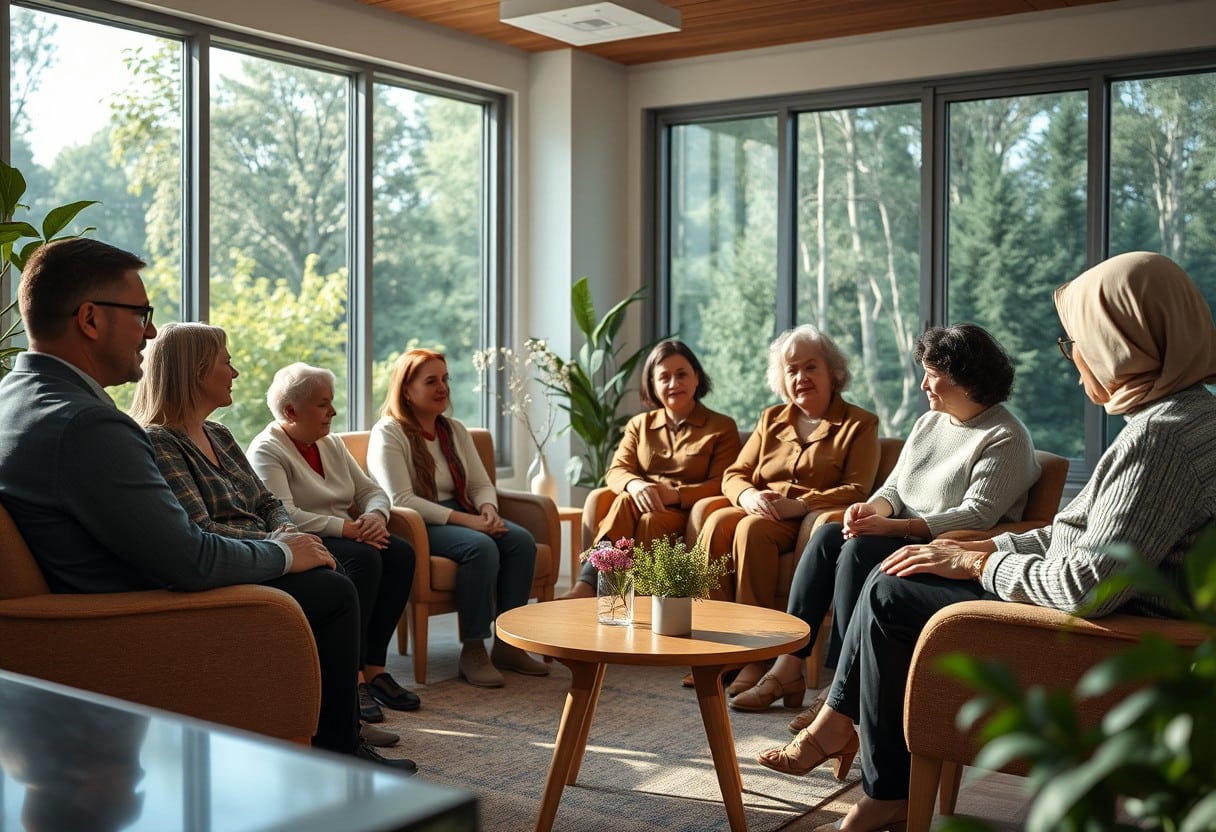Rehabilitation is a transformative journey that can lead you to a healthier, addiction-free life. In this comprehensive guide, you’ll discover the vital steps and resources available at Transformations Care to support your recovery process. We will walk you through the various treatment options, therapies, and support systems designed to empower you on your path to wellness. By understanding what to expect and how to engage fully, you can make informed decisions that prioritize your needs and set the foundation for lasting change.
Types of Rehabilitation Programs
For those seeking recovery, understanding the various rehabilitation programs available is crucial. Each program type is designed to cater to different needs and circumstances. Below is a breakdown of some common types of rehabilitation programs:
| Inpatient Rehabilitation | Intensive, residential programs |
| Outpatient Rehabilitation | Flexible programs allowing continued daily activities |
| Partial Hospitalization | Structured programs without overnight stays |
| Sober Living | Transitional housing with support systems |
| Detoxification | Medical supervision to safely manage withdrawal |
Thou must choose a program that best fits your lifestyle and recovery needs.
Inpatient Rehabilitation
Rehabilitation in an inpatient setting provides a structured environment for recovery, where you can focus solely on overcoming addiction without external distractions. This type of program often includes medical supervision and intensive therapy sessions. (Choosing between inpatient and outpatient can significantly affect your recovery journey.)
Outpatient Rehabilitation
If you are looking for flexibility while engaging in treatment, outpatient rehabilitation may be ideal for you. This program allows you to attend therapy sessions and support groups while continuing your daily routine, including work and family commitments.
Plus, outpatient programs often include various treatment modalities, such as individual therapy, group sessions, and educational workshops, enabling you to tackle addiction holistically. As you engage in this less intensive approach, you will benefit from the support of professionals while developing coping mechanisms for life outside treatment.
A Step-by-Step Guide to the Rehabilitation Process
Any successful rehabilitation journey begins with a structured process. Understanding each phase can empower you to navigate your recovery effectively. The following table outlines the key steps involved in the rehabilitation process.
| Steps | Description |
| Initial Assessment | Evaluation of your physical and mental health needs. |
| Treatment Planning | Developing a personalized care plan. |
| Ongoing Support | Access to continued assistance post-treatment. |
Initial Assessment
StepbyStep, your rehabilitation process begins with an initial assessment. This evaluation gathers crucial information about your substance use history, physical health, and mental well-being. Professionals will use this data to identify your unique needs and tailor the rehabilitation approach.
Treatment Planning
Guide yourself through effective treatment planning, where a customized care plan is developed based on your assessment results. This plan outlines therapeutic interventions and goals that resonate with your recovery journey. A collaborative approach ensures your preferences and needs are integrated (this is an important opportunity for you to voice your concerns).
Understanding the treatment planning phase is vital for your success. Your treatment team will work with you to address specific challenges, including potential triggers and coping strategies, ensuring a comprehensive approach to rehabilitation (being open and honest about your past will aid this process).
Ongoing Support
Rehabilitation doesn’t end with treatment; ongoing support is equally important. This phase provides you with the resources and community needed to maintain sobriety and navigate life’s challenges. Regular check-ins, support groups, and therapy sessions can play a key role in your long-term success.
Process-oriented approaches during ongoing support help you refine your coping skills, strengthen your support network, and ensure you remain engaged in your recovery journey. Staying connected to peers and professionals allows for shared experiences and accountability, both important for sustained recovery.

Key Factors Influencing Successful Rehabilitation
To achieve lasting recovery, various elements play a significant role in your rehabilitation journey. Some key factors include:
- Your level of personal commitment
- The quality of support systems in place
- Access to effective therapies
- Establishing routine and structure
- Your willingness to learn and adapt
Thou will find that understanding these factors enhances your chances of successfully navigating recovery. For detailed insights on Substance Abuse Treatment In Los Angeles, explore our resources.
Individual Commitment
One of the most vital components of successful recovery is your commitment to the process. (This decision governs the level of effort and dedication you will invest in your healing journey.) Taking ownership of your recovery empowers you to work toward lasting change.
Support Systems
Rehabilitation is significantly enhanced by the support systems surrounding you. This network can include family, friends, therapists, and support groups, all of whom play a vital role in your healing.
To build a robust support system, you should cultivate relationships with those who understand your challenges and provide encouragement. Having others to lean on during tough times can help you stay motivated and accountable. Engaging with a community can make your recovery less isolating and more empowering, guiding you toward a healthier future.
Tips for Choosing the Right Rehabilitation Center
Once again, selecting the appropriate rehabilitation center is pivotal for your journey to recovery. Consider these tips:
- Assess the qualification of the staff.
- Evaluate the types of treatment programs available.
- Look into the facility’s location.
- Review success rates and testimonials.
Thou shan’t underestimate these factors in your decision-making process.
Accreditation and Credentials
There’s no denying that accreditation and credentials are necessary factors when choosing a rehabilitation center. (Look for certifications from recognized bodies such as The Joint Commission or the National Association of Addiction Treatment Providers.) A center with the right qualifications often signifies adherence to industry standards, enhancing the likelihood of a quality recovery experience.
Services Offered
Clearly, the range of services offered can significantly influence your rehabilitation experience. (A center with a comprehensive list of services ensures that you receive tailored care that meets your specific needs.) Services may include detox, individual therapy, group therapy, and aftercare programs, among others, allowing for a holistic approach to recovery.
Choosing a center that provides a variety of services is important for your long-term success. Options that cover mental health counseling, life skills training, and relapse prevention strategies can equip you with the tools necessary for lasting recovery. (The more comprehensive the services, the better equipped you’ll be to achieve your goals and maintain sobriety.)
Pros and Cons of Different Rehabilitation Approaches
All rehabilitation approaches offer unique benefits and drawbacks. Understanding these can help you make informed choices about your treatment options. Below is a breakdown of several approaches:
| Approach | Pros | Cons |
|---|---|---|
| 12-Step Programs | Structured support network | May not resonate with everyone |
| Medical Models | Focus on detoxification and medical support | Can be less personal |
| Holistic Approaches | Holistic healing of mind and body | Variable effectiveness |
| Residential Treatment | Immersive environment away from triggers | Time-intensive and expensive |
| Outpatient Programs | Flexibility with daily routines | Less structure, higher relapse risk |
For comprehensive care, explore Transformations Care | Torrance, CA.
Medical Models vs. Holistic Approaches
Any discussion about rehabilitation must consider medical models versus holistic approaches. Medical models primarily focus on the physiological aspects of addiction, utilising detox and medication interventions. In contrast, holistic approaches emphasize treating the whole person by integrating psychological and lifestyle factors. Each method has its advocates and can be effective, depending on your unique needs and circumstances.
Long-term Inpatient Care vs. Short-term Outpatient Care
Longterm inpatient care is often ideal for individuals needing intensive support to overcome serious addiction challenges, while short-term outpatient care may be suitable for those who have a stable support system. (You should assess your personal circumstances to determine which path aligns with your recovery goals.)
Plus, consider that long-term inpatient care generally provides a structured environment where you can focus solely on your recovery, minimizing distractions. Short-term outpatient care allows for more flexibility, making it a more suitable option for some. (Ultimately, your decision should be based on your unique recovery needs and lifestyle.)
Aftercare and Relapse Prevention Strategies
Now that you’ve completed your initial rehabilitation at Transformations Care, it’s imperative to prioritize aftercare and relapse prevention strategies. This phase focuses on maintaining your progress by creating a structured plan that involves continued support and accountability to help you navigate challenges and minimize risks as you reintegrate into daily life.
Continued Therapy Options
You should consider continued therapy options, such as individual counseling or group therapy sessions, to further develop coping mechanisms and address underlying issues that may contribute to substance use. (Choosing the right type of ongoing therapy is a significant step toward sustaining your recovery.)
Support Groups and Resources
Resources such as support groups can provide you with a community of individuals who share similar experiences, fostering a sense of belonging while reinforcing your commitment to sobriety.
Support groups, like Alcoholics Anonymous (AA) and Narcotics Anonymous (NA), offer a platform for sharing personal stories and coping strategies, creating a powerful network of encouragement and understanding. By engaging with these resources, you can cultivate connections that strengthen your motivation and resilience, making your recovery journey more manageable and successful.
To wrap up
Following this comprehensive guide to drug and alcohol rehabilitation at Transformations Care, you possess valuable insights into the various treatment options available to you. Understanding the importance of personalized care and support can empower your recovery journey. By utilizing evidence-based therapies and engaging in a nurturing environment, you can take significant strides toward healing and reclaiming your life. Embrace the opportunity to transform your future and seek the help you deserve at Transformations Care.
FAQ
Q: What types of therapies are offered in the rehabilitation programs at Transformations Care?
A: Transformations Care provides a wide variety of therapeutic options to cater to the diverse needs of individuals in recovery. Our programs typically include individual therapy, group therapy, family therapy, and holistic approaches such as mindfulness, yoga, and art therapy. Each therapy type aims to address the root causes of addiction while promoting emotional healing and personal growth, allowing clients to build new, healthier coping skills.
Q: How long do the rehabilitation programs typically last at Transformations Care?
A: The duration of rehabilitation programs at Transformations Care can vary depending on the needs of the individual and the specific program selected. Generally, our programs range from 30 to 90 days, with some options for extended care if necessary. During the assessment process, we work closely with clients to determine the most suitable length of stay to ensure they receive the comprehensive support they need for successful recovery.
Q: What aftercare services are available following rehabilitation at Transformations Care?
A: Aftercare services are a vital part of the recovery process at Transformations Care. We offer a variety of support options, including continued therapy sessions, support groups, and access to community resources. This ongoing care is designed to assist individuals as they transition back into their daily lives, helping them to maintain sobriety and prevent relapse. Our aftercare planning is personalized to meet each client’s unique needs, ensuring they have the tools and support to continue their recovery journey.




















